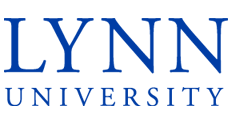Graduate Student Dissertations, Theses, Capstones, and Portfolios
Date of Award
11-9-2009
Document Type
Dissertation
Granting Institution
Lynn University
Degree Name
Doctor of Philosophy (PHD)
Degree Program
Global Leadership - with a specialization in Educational Leadership
Department
College of Education
First Advisor
Adam L. Kosnitzky
Second Advisor
William Leary
Third Advisor
Jill Perel
Abstract
According to the National Mathematics Advisory Panel (2008) differences in students' mathematical achievement were attributed to differences in teacher characteristics, including the use of instructional methods and their self-efficacy beliefs. Concurrently, today's mathematics teachers face challenges arising from Federal and State mandates requiring students' proficiency to improve on standardized tests. This study considered the relationship between two characteristics, mathematics teachers' self-efficacy and their choice of instructional strategies. Further, the relationship between teachers' self-efficacy and their demographic characteristics as measured by a researcher-developed questionnaire was explored.
The researcher utilized the Teacher Self-Efficacy Scale (TSES) and the Teachers' Instructional Practices Survey (TIPS), which were integrated onto the Survey Monkey website. Members of the Florida Council of Teachers of Mathematics (FCTM) were invited to participate in this study through the FCTM Newsletter, as well as through an email which included a hyperlink to the surveys. Additional access was made available to teachers via a link posted in the FCTM website. The link was kept active and data collected from April 24 through May 28,2009.
A total of 101 middle school mathematics teachers completed all the questions in the surveys. Results indicated that instructional strategies chosen by teachers with higher self-efficacy differed by frequency of use from those employed by teachers with lower self-efficacy. Teachers with higher TSES scores demonstrated a significantly higher use of problem-based learning, direct instruction, and communication and study skills. Although not significant, it was notable that teachers with higher self-efficacy scores (TSES scores) used manipulatives and multiple representations, and collaborative learning, more often than teachers with lower TSES scores during self- reported five period days. Nevertheless, teachers with lower self-efficacy tended to use technology aided instruction more often than teachers with higher self-efficacy.
Recommended Citation
Ordonez-Feliciano, J. P. (2009). Self-Efficacy and Instruction in Mathematics [Doctoral dissertation, Lynn University]. SPIRAL. https://spiral.lynn.edu/etds/165



